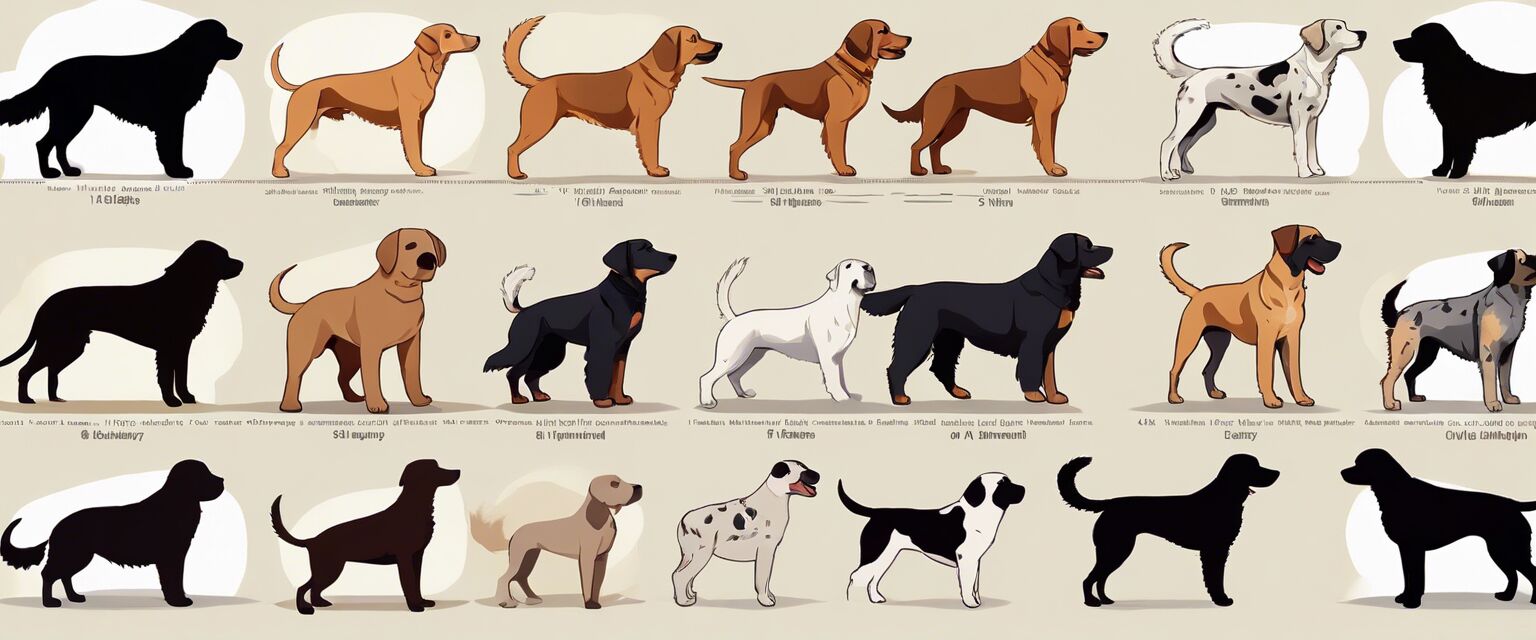
Puppy Health and Care
Key Takeaways
- Puppies require proper nutrition, exercise, and socialization.
- Regular veterinary check-ups are essential for monitoring health.
- Grooming and hygiene play a vital role in maintaining a puppy's well-being.
- Mental stimulation is crucial for a puppy's development.
- Understanding behavioral needs can lead to a happier, healthier puppy.
Ensuring the health and wellbeing of puppies from birth to adulthood is vital for every dog owner. This guide provides comprehensive information on various aspects of puppy care, including nutrition, exercise, grooming, and more.
Nutrition for Puppies
Proper nutrition is fundamental for your puppy's growth and development. Puppies have different dietary needs compared to adult dogs.
| Age | Recommended Diet | Feeding Frequency |
|---|---|---|
| 8-12 weeks | High-quality puppy food (dry or wet) | 4 meals a day |
| 3-6 months | High-protein puppy food | 3 meals a day |
| 6-12 months | Transition to adult food | 2 meals a day |
Choosing the Right Food
When selecting food for your puppy, look for:
- High-quality ingredients
- Essential vitamins and minerals
- Adequate protein content
- Age-appropriate formulas
Exercise and Training
Regular exercise is crucial for your puppy's physical and mental health. It helps prevent behavioral issues and promotes strong muscles and joints.

Exercise Needs by Age
| Age | Recommended Exercise |
|---|---|
| 8-12 weeks | Short walks and playtime (15-20 min) |
| 3-6 months | Moderate walks and play (30 min) |
| 6-12 months | Longer walks and activities (1 hour) |
Training should begin early to instill good behavior. Basic commands and socialization with other dogs are essential.
Training Tips
- Use positive reinforcement methods.
- Be consistent with commands and rewards.
- Limit training sessions to short intervals.
- Socialize your puppy with various environments and people.
Grooming and Care
Regular grooming is essential for maintaining your puppy's hygiene and health.

Basic Grooming Checklist
- Brush coat regularly to remove loose fur.
- Trim nails to prevent overgrowth.
- Clean ears and teeth to avoid infections.
- Regular baths to keep the coat clean.
Health Care for Puppies
Regular veterinary visits are critical to monitor your puppy's health. Vaccinations, parasite prevention, and health screenings are part of responsible puppy care.
Vaccination Schedule
| Age | Vaccination |
|---|---|
| 6-8 weeks | DHP (Distemper, Hepatitis, Parvovirus) |
| 10-12 weeks | DHPP (plus Parvovirus) |
| 14-16 weeks | Rabies and DHPP booster |
Mental Stimulation
Puppies need mental stimulation to develop their cognitive abilities. Engaging toys and activities can help keep their minds active.
Activities for Mental Stimulation
- Interactive puzzle toys
- Hide-and-seek games
- Basic obedience training
- Agility courses
Understanding Puppy Behavior
Understanding your puppy's behavior is essential for effective training and care. Puppies may exhibit behaviors like chewing and barking as part of their development.
Common Puppy Behaviors
- Chewing: A natural teething process.
- Barking: A way to communicate needs or feelings.
- Digging: Instinctive behavior; can be redirected with training.
Pros
- Strong bond between owner and puppy.
- Healthy lifestyle promotes longevity.
- Well-trained puppies adapt better to homes.
Cons
- Requires time and commitment for training.
- Initial costs for vaccinations and supplies.
- Potential behavioral issues if not properly socialized.
In conclusion, raising a healthy and happy puppy requires dedication and knowledge. Proper nutrition, regular exercise, and consistent training are key components of successful puppy care. For more information on how to keep your puppy healthy, check out our other guides on exercise and training, grooming and care, and health and wellness.








